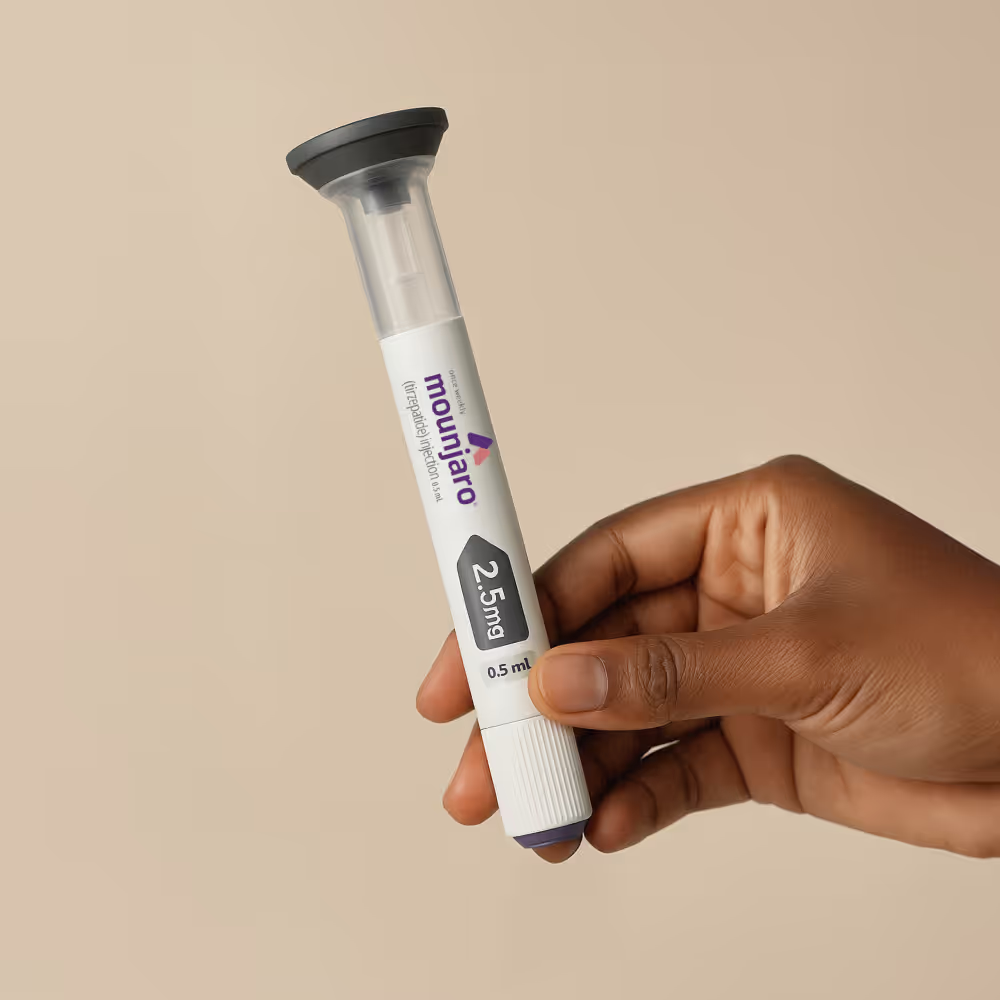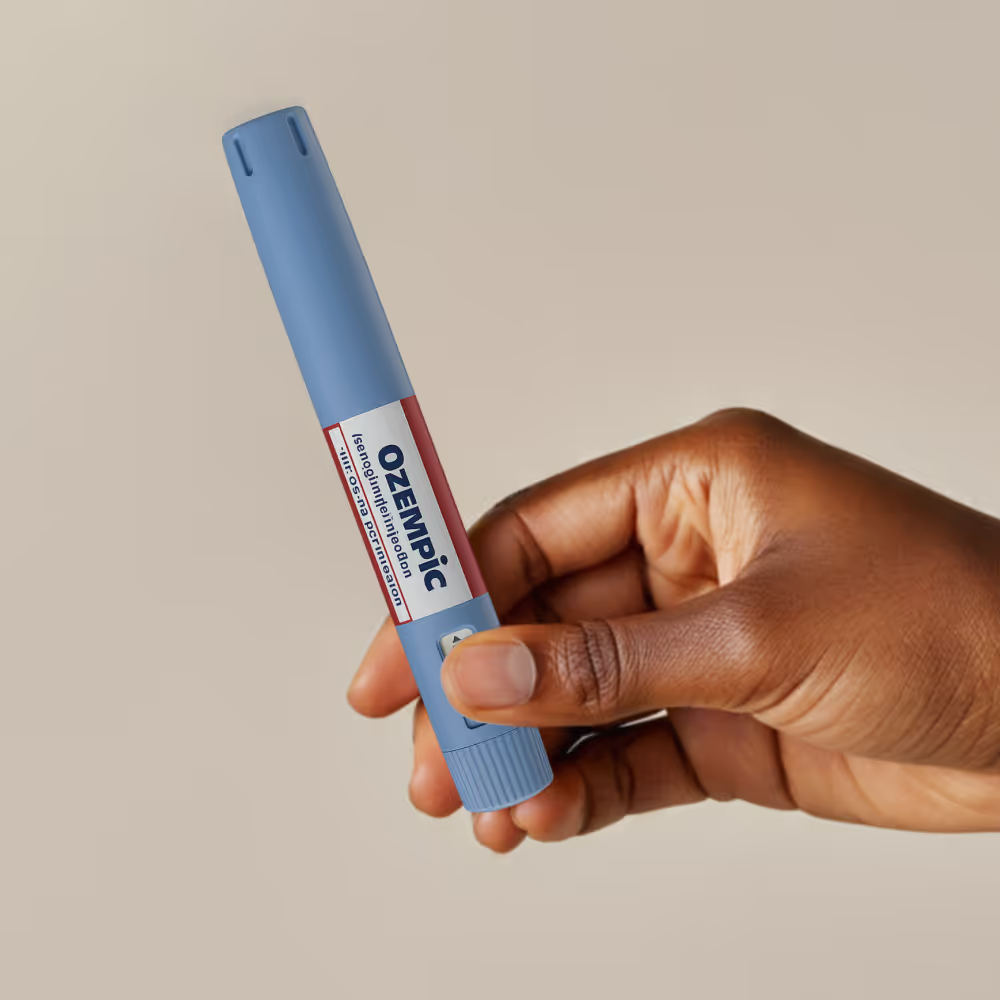Understanding Weight Loss Expectations with GLP-1 Agonists: Insights from Clinical Trials and Practical Guidance
GLP-1 receptor agonists have emerged as promising medications for weight management, offering effective solutions for people struggling with obesity. However, understanding the expected weight loss outcomes and setting realistic expectations are important aspects of treatment. In this article, we delve into the findings of notable clinical trials regarding weight loss with GLP-1 agonists and provide practical guidance for patients considering or undergoing this treatment.
Practical Guidance for Patients:
Based on the findings of clinical trials and real-world experience, here are some practical guidelines for patients considering or undergoing treatment with GLP-1 agonists:
- Set Realistic Expectations
- While GLP-1 agonists can lead to significant weight loss, individual responses may vary.
- It's essential to set realistic expectations and understand that weight loss outcomes depend on various factors, including your baseline weight, adherence to treatment, and lifestyle habits.
- Baseline Weight
- Your starting weight is important in determining how much weight you can potentially lose on treatment.
- The trial results noted above reflect weight loss as a percentage of baseline weight. For example, treatment with semaglutide resulted in a ~15% weight loss from the participants’ baseline weight by the 68-week mark.
- Your starting weight is important in determining how much weight you can potentially lose on treatment.
- Embrace Lifestyle Changes
- GLP-1 agonists work best when combined with healthy lifestyle habits, including a balanced diet and regular exercise. The weight loss results reported in the clinical trials were only achieved by combining lifestyle changes with medication.
- Stick to the Program:
- Adhering to your medication regimen is crucial. As highlighted in the SURMOUNT-4 Trial, participants who discontinued medication during the course of treatment experienced weight regain, and those who continued with the medication had additional weight loss.
- Be Patient and Persistent
- Weight loss with GLP-1 agonists may occur gradually over time. Be patient and persistent, and don't get discouraged by minor setbacks. Consistency and adherence to treatment are key to achieving meaningful and sustainable weight loss outcomes.
Understanding Clinical Trial Findings:
Numerous clinical trials have evaluated the efficacy of GLP-1 agonists in promoting weight loss among individuals with obesity or overweight. Here are some key findings from notable trials:
STEP 1 Clinical Trial:
Over 1900 adults with a BMI of ≥27 or ≥30 were randomly assigned to 68 weeks of treatment with once-weekly subcutaneous semaglutide (at a dose of 2.4 mg) or placebo, plus lifestyle intervention. some text
- The percent change in body weight at week 68 was -14.9% in the semaglutide group as compared with -2.4% with placebo.
- The change in body weight from baseline to week 68 was -15.3 kg in the semaglutide group as compared with -2.6 kg in the placebo group.
- Participants who received semaglutide also had a greater improvement of their cardiometabolic risk factors and a greater increase in physical functioning.
- Nausea and diarrhea were the most common adverse events with semaglutide; they were typically transient and mild-to-moderate in severity and resolved with time.
SURMOUNT-1 Clinical Trial:
In this phase 3 randomized controlled trial, adults who were overweight or obese received once-weekly, subcutaneous tirzepatide (5 mg, 10 mg, or 15 mg) or placebo for 72 weeks. some text
- At the 72 week mark, the mean percentage change in weight was -15.0% with 5-mg weekly doses of tirzepatide, -19.5% with 10-mg doses, and -20.9% with 15-mg doses. Adults had -3.1% weight loss with placebo.
- Improvements in all cardiometabolic measures were observed with tirzepatide as well.
- The most common adverse events with tirzepatide were gastrointestinal, and most were mild to moderate in severity, occurring primarily during dose escalation.
SURMOUNT-4 Clinical Trial:
After 36 weeks of maximum tolerated dose of tirzepatide (10 or 15 mg), adults with obesity or overweight experienced a mean weight reduction of 20.9%. some text
- At the 36 week mark, adults who were switched to placebo experienced a 14% weight regain and those continuing tirzepatide experienced an additional 5.5% weight reduction during the 52-week period.
- Like previous studies, this also suggests that most individuals with obesity who are on pharmacotherapy will require long-term treatment for weight loss maintenance.
Conclusion:
GLP-1 agonists offer effective options for weight management, backed by evidence from clinical trials and real-world experience. By understanding the expected weight loss outcomes, setting realistic expectations, and following practical guidance, patients can maximize the benefits of treatment and achieve their weight loss goals.
References:
Once-Weekly Semaglutide in Adults with Overweight or Obesity. Wilding JPH, Batterham RL, Calanna S, Davies M, Van Gaal LF, Lingvay I, McGowan BM, Rosenstock J, Tran MTD, Wadden TA, Wharton S, Yokote K, Zeuthen N, Kushner RF, STEP 1 Study Group. N Engl J Med. 2021;384(11):989. Epub 2021 Feb 10.
Effect of Subcutaneous Semaglutide vs Placebo as an Adjunct to Intensive Behavioral Therapy on Body Weight in Adults With Overweight or Obesity: The STEP 3 Randomized Clinical Trial.
Wadden TA, Bailey TS, Billings LK, Davies M, Frias JP, Koroleva A, Lingvay I, O'Neil PM, Rubino DM, Skovgaard D, Wallenstein SOR, Garvey WT, STEP 3 Investigators. JAMA. 2021;325(14):1403.
Tirzepatide Once Weekly for the Treatment of Obesity. Jastreboff AM, Aronne LJ, Ahmad NN, Wharton S, Connery L, Alves B, Kiyosue A, Zhang S, Liu B, Bunck MC, Stefanski A, SURMOUNT-1 Investigators. N Engl J Med. 2022;387(3):205. Epub 2022 Jun 4.
Tirzepatide once weekly for the treatment of obesity in people with type 2 diabetes (SURMOUNT-2): a double-blind, randomised, multicentre, placebo-controlled, phase 3 trial. Garvey WT, Frias JP, Jastreboff AM, le Roux CW, Sattar N, Aizenberg D, Mao H, Zhang S, Ahmad NN, Bunck MC, Benabbad I, Zhang XM, SURMOUNT-2 investigators. Lancet. 2023;402(10402):613. Epub 2023 Jun 26.
Continued Treatment With Tirzepatide for Maintenance of Weight Reduction in Adults With Obesity: The SURMOUNT-4 Randomized Clinical Trial. Aronne LJ, Sattar N, Horn DB, Bays HE, Wharton S, Lin WY, Ahmad NN, Zhang S, Liao R, Bunck MC, Jouravskaya I, Murphy MA, SURMOUNT-4 Investigators. JAMA. 2024;331(1):38.








































































.avif)
.avif)






